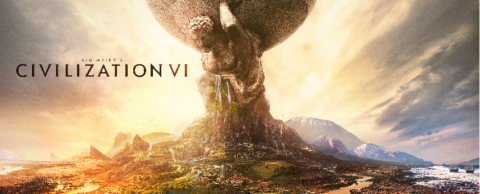Last week, Chris Suellentrop talked to the legendary Sid Meier about the Civilization series and other games:
The first Civilization was released more than a quarter-century ago in 1991, after being developed by a team of two – Meier and Bruce Shelley – that grew to 10 at its largest. Meier estimated recently that the budget for the game was around $170,000. He did the programming, the design, and the artwork. “It was kind of an audacious game for us to make,” Meier said during a talk about the game’s development at this year’s Game Development Conference in San Francisco. “6,000 years of history in 640k.”
The Civilization series has now sold almost 40 million copies, according to Take Two, which owns Firaxis. Sid Meier’s Civilization VI, the most recent entry in the series, was released last year. (Even though Meier’s name is on it, the lead designer was Ed Beach.)
At GDC, Meier talked to Glixel for almost an hour with boyish enthusiasm about what makes Civilization work, why Firaxis turns to a new lead designer with almost every sequel, and that whole thing with having his name on the box.
How did it feel to deliver a postmortem on Civilization at the Game Developers Conference to mark the 25th anniversary of the game’s release?
In between the time Civ 1 came out and now, the Internet appeared, modding appeared, Reddit appeared, mobile appeared. So many things have happened in that time. But it’s all within a lifetime.At Firaxis, Civ has been the pillar of what we do. We’re able to find a freshness in it by bringing in different designers. It’s one of the unique things about Civilization. Each iteration is led by a different person. There’s almost a Civ burnout. Once you’ve done a Civ, you’re kind of burned out and somebody else comes in with some fresh ideas.
[…]
What makes a good Civ game?
What happens in the player’s imagination. What we discovered afterwards, just by luck, kind of, was what fueled this “one more turn” phenomenon was the idea that, in your mind, you were always projecting what was going to happen next and what was going to happen three turns from now, what was going to happen eight turns from now. You had multiple irons in the fire. You were exploring this continent. You were dealing with troublesome neighbors. And you had this wonder that was always about to be built. So you were always anticipating what comes next.A good Civ game has that quality, and it’s based in part on the turn-based nature of it. You have the time to imagine what’s going to happen next. You have the time to project your strategy, your ideas into the future. There’s also the anticipation not only of what you’re about to do but what the game’s about to do to you. Genghis Khan is going to show up. Or they’re going to finish the wonder before you. So there’s all those things that you are looking forward to and anticipating.




